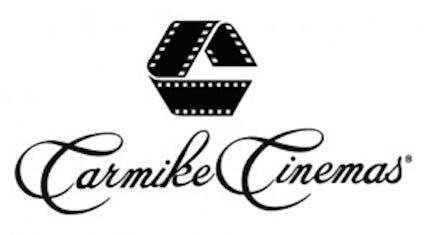The cinema industry is dead. In the mass media, such articles have become commonplace. Some articles blame the lack of creativity of filmmakers. Others note premium video-on-demand services and distributors tinkering with release windows. But concerns about the death of cinemas are much overstated. Carmike Cinemas, Inc. (NASDAQ:CKEC) offers a great way to exploit this pessimism.

Carmike Cinemas, Inc. (NASDAQ:CKEC) has had something of a tumultuous history. The company’s woes began in the late 1990s with over-expansion in the theater industry and the accumulation of huge amounts of debt. Inevitably, it filed for bankruptcy in 2000, facilitating divestiture of underperforming sites. However, the company quickly fell into the same problems again. Sites expanded, debt was taken on, and the company had some accounting problems.
Matters look to have turned recently, David Passman took over as CEO in 2009 and has worked hard to solve these problems. The dividend has been suspended, the company has refinanced debt and raised equity. More importantly for this investment thesis, management has adopted a more disciplined approach to acquisitions. Targeting a return of 25%, management has set a goal of 300 theaters and 3,000 screens, up from 250 and 2,502 now.
Growth ahead
This growth is key to the bull case for Carmike Cinemas, Inc. (NASDAQ:CKEC). The big four chains – Regal Entertainment Group (NYSE:RGC), AMC, Cinemark Holdings, Inc. (NYSE:CNK), and Carmike – control around half of the roughly 40,000 domestic screens. Half of the domestic screen base could serve as a pool for potential acquisitions. Of these, about a half-dozen chains have 230 or more screens and several dozen with about 100 or so each. A significant share operate in smaller markets, although others including Regal have shown an interest in these markets too. Despite this, Carmike, with its low cost of capital and strict discipline, has tremendous opportunity here.
The most recent acquisition was Rave Theaters, consisting of 16 theaters and 251 screens. This acquisition should highlight the scope to bring down costs. Carmike Cinemas, Inc. (NASDAQ:CKEC) has significant experience in bringing down costs and increasing revenues at the theater level, it has done this in its own business over the past few years.
In addition to this, Carmike should be able to use growth in scale to bring down its film-rental costs which are the highest among publicly traded companies. Intent was shown in 2010 by hiring John Lundin, who had previously been a district manager in distribution for Sony.



